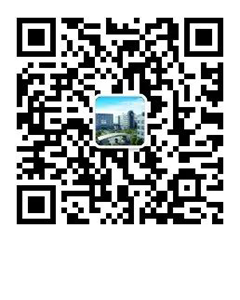Pro-angiogenic and anti-angiogenic factors in cartilage regeneration and degeneration
SEMINAR
Biomaterials and Tissue Engineering Research Center, Shanghai Institute of Ceramics, Chinese Academy of Sciences
中国科学院上海硅酸盐研究所生物材料与组织工程研究中心
Pro-angiogenic and anti-angiogenic factors in cartilage regeneration and degeneration
Speaker:Prof. Yin Xiao
(Queensland University of Technology)
报告时间:2015年12月21日(星期一)14:00
报告地点:4号楼14楼第一会议室
联系人:吴成铁(52412249)
Abstract:
Osteoarthritis (OA) is the most common form of musculoskeletal disorder and is a leading cause of disability in the elderly. The key pathophysiological features of OA joints include articular cartilage degeneration and abnormal subchondral bone metabolism; however the aetiology is largely unknown. Angiogenesis, controlled by a balance between endogenous pro-angiogenic and anti-angiogenic factors, has been found to contribute to pathogenesis of OA and cartilage regeneration. Normal cartilage is known to contain considerable amount of anti-angiogenic factors. Among them, Chondromodulin-1 (ChM-1) is the most specific and abundant one in cartilage. However, the contribution of anti-angiogenic factors in the maintenance of chondrocyte phenotype is largely unknown. We have addressed the balance between angiogenesis and anti-angiogenesis in cartilage regeneration and OA cartilage with the focus on the function of anti-angiogenic factor ChM-1. Our results indicate that ChM-1 is essential to maintain the chondrocyte phenotype and prevent hypertrophy by inhibiting catabolic factors of COL10A1, MMP-13 and VEGFA via HIF-2α signalling pathway. Moreover, our in vivo study provides a potential therapeutic strategy for cartilage regeneration and OA treatment through supplement of anti-angiogenic factor of ChM-1. This study extended our knowledge on the importance of anti-angiogenic property in maintaining the physiological functions of chondrocytes and preventing hypertrophy.
Personal information:
Dr. Xiao is currently a Professor at Institute of Health and Biomedical Innovation (IHBI), Queensland University of Technology (QUT) and a group leader of Bone and Tissue Engineering research program. He obtained his BDSc and MDSc from Wuhan University, China, and has 10 years clinical experience. In 2000, he graduated with a PhD from School of Dentistry at the University of Queensland (UQ), Australia. He worked as a research officer at UQ for two years following his graduation and an NHMRC Research Fellowship at the School of Life Sciences at QUT from 2003. In 2005 and 2012 he was appointed an Associate Professor and Professor, respectively in Bone Biology and Tissue Engineering at the Department of Biomedical Engineering at QUT. He is currently the Director of Australia-China Centre for Tissue Engineering and Regenerative Medicine (ACCTERM). In the past five years, he has attracted more than $4.5 million in research funding from nationally competitive grant schemes and other research foundations (e.g. NHMRC, ARC, QUT Seeding grants, QUT commercial funding from QUT Bluebox, ITI foundation and TPCH foundation). Professor Xiao’s work has predominantly focused on the fields of bone biology, biomaterials, stem cells, dentistry, osteoarthritis, and tissue regeneration/engineering. He has published two edited books, 10 invited book chapters and more than 170 journal papers. In the last five years, Professor Xiao’s citation index (h-index: 34) has risen significantly with more than 3400 citations.
欢迎广大科研人员和研究生参加!


 当前位置:
当前位置:

